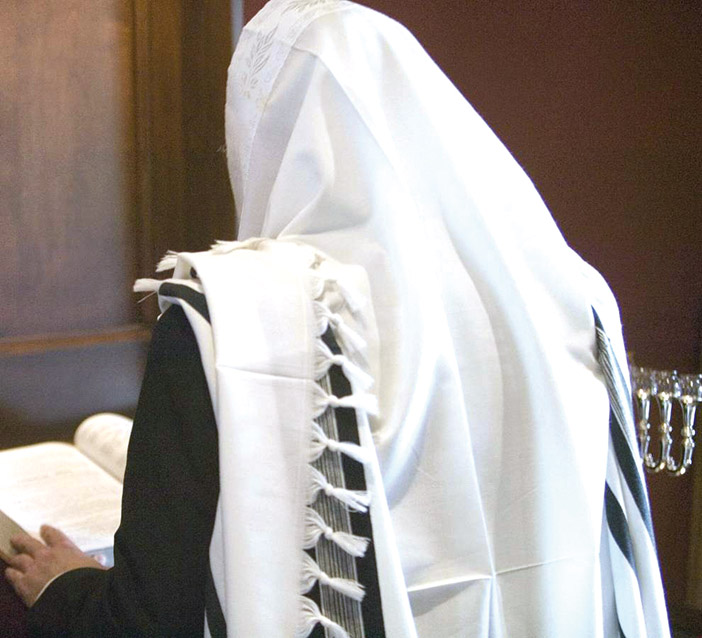By Rabbi Yair Hoffman for 5TJT.com
THE QUESTION: [posed by a visitor to the White Shul from Eretz Yisroel]
The White Shul in Far Rockaway has an early mincha and maariv minyan for older folks and for those who feel like older folks – where mincha is held before Plag haMincha and they daven maariv right after the plag and before shkiya. The question is, what happens on the day before Rosh Chodesh? Do they say yaaleh v’yavo in the early maariv? Perhaps this is only permitted on erev Shabbos before Shabbos because of the notion of tosefes Shabbos (according to most rishonim) – but Rosh chodesh does not have tosefes Shabbos – so what should be done?
THE ANSWER:
It would seem that the question would depend upon a machlokes Rishonim. We know that one may daven early on erev Shabbos as seen in the Gemorah in Brachos 27a.
But is it because one has accepted Shabbos early and the kedusha of Shabbos can arrive early – as Rashi, Tosfos and the Ohr Zaruah all indicate? The Talmud teaches us of the concept of adding onto Yom Kippur – that there is a Mitzvah and obligation to do so. Rashi, Tosfos and the Ohr Zaruah all hold that tosefes Yom Kippur also applies to Shabbos – that we can and must add to Shabbos too.
However, Rosh Chodesh has no concept of tosefes Rosh Chodesh, adding onto Rosh Chodesh from beforehand as seen in the Mogain Avrohom 419:1. If that is the case then we would not be able to daven Maariv early.
Or perhaps the reason that we may daven maariv early on a Friday is because the time for the tefilah is right before that day as the Rambam writes (in his responsum either #160 or 76). If that is the case then it would be acceptable to do so on the day before Rosh Chodesh as well.
Interestingly enough, the Rambam in Hilchos Tefilah 3:7 writes that the reason one can daven earlier is because Tefilas Maariv is a reshus – so we are not medakdek in its time.”
POSSIBLE MACHLOKES RISHONIM
According to Rashi, Tosfos and the Ohr Zaruah, it would seem that one would not recite Yaaleh v’yavo then. According to the Rambam – one would recite it – either because of the reason in the teshuvos or because of what he writes in Hilchos Tefillah.
Rav Aryeh Tzvi Frumer (1884-1943) zt”l hy”d author of the Eretz Tzvi (Siman 26) deals with this question. His ruling is in response to a question posed to him by the Gerrer Rebbe, Rav Avrohom Mordechai Alter (1866-1948), author of the Imrei Emes. The Gerrer Rebbe ruled that there is no need to mention Yaaleh v’yavoh when one davens right after the Plag.
Rav Frumer says that if that were the case it would be forbidden to daven then and since there is no one who writes that as an issur – it must be that one would add it in. (In defense of the Imrei Emes, he would likely hold that it would not be forbidden to daven then at all since he davened his whole chiyuv and maariv initially was a reshus.) As an aside, Rav Frumer took over as Rosh Yeshiva of Yeshivas Chochmei Lublin after Rav Meir Shapiro passed away. He also started the Mishnayos Yomis. The Nazis yimach sh’mam killed him in the Majdanek Concentration Camp on May 2nd, 1943. His yartzeit is the 27th of Nissan 5703.
Rav Yaakov Betzalel Zolty (1920-1982) zt”l, author of the Mishnas Yaavetz (on Moadim Siman 2) writes that even according to the other Rishonim one would mention Yaaleh v’Yavo when one davens early because the main rosh chodesh is on the day itself and not at night. We just have to mention yaaleh veyavo because of the halacha of mentioning zman hame’urah of the maariv (See Rashi, Shabbos 24a). That begins after plag. This is the reason why, if we forget yaaleh veyaavoh at night, we don’t repeat it – because the main rosh chodesh is during the daytime.
CONCLUSION
According to Rav Frumer and Rav Zolty, the halacha is that one does recite yaaleh v’yavo at the early maariv before Rosh Chodesh begins. In this author’s opinion that according to the Gerrer Rebbe one would not say it. One should follow the ruling of Rav Frumer and Rav Zolty unless one is a Gerrer Chassid. So, in this author’s opinion, all the Gerrer Chassidim that daven maariv at the early white shul minyan should not say it – everyone else should. The question, of course, should be posed to the esteemed Moreh D’Asra of the shul, as is true in all cases of Psak Halacha in shuls.
The author can be reached at [email protected]











